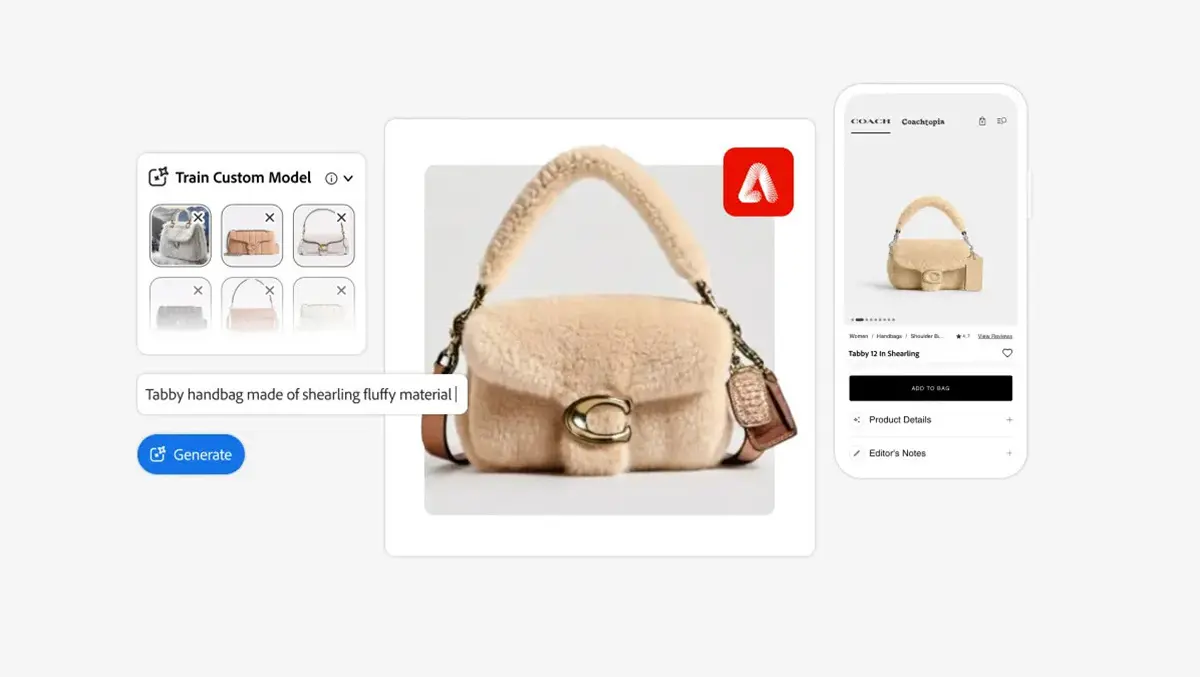
Tapestry utilises Adobe AI for digital twin design boost
Tapestry, the parent company of Coach, Kate Spade New York, and Stuart Weitzman, is adopting Adobe Firefly custom AI models to cater to the increasing demand for digital twins and to enhance its product design process.
The use of Adobe Firefly Custom Model has enabled Coach to create detailed digital twins of their products, permitting product designers to experiment with new ideas, assist digital marketing campaigns, and gather consumer feedback, which informs product development.
Adobe's technology provides Tapestry a scalable solution for crucial internal services, enabling teams to effectively ideate and produce products that align with customer preferences. Tapestry is also utilising Firefly Services, which includes creative and generative APIs and services, to help automate the image creation process for internal merchandising purposes.
J.J. Camara, Senior Director of Digital Product Creation at Tapestry, stated, "At Tapestry DPC, we understood the potential for generative AI to alleviate the bottlenecks that were preventing us from scaling our digital twins, but we needed a trusted partner that was reliable and ethical in their approach to the technology. We have a long relationship with Adobe, and our teams love their design tools. We felt confident in what Adobe Firefly could generate, and the result from our customised model will dramatically change how we support our brands from concept to consumer."
Digital twins, or virtual replicas of physical products, have been embraced by Tapestry across teams, from the design process to digital marketing and consumer research. Generative AI, such as Adobe Firefly, has been trained using Tapestry's proprietary assets to ensure that the images generated match each brand's identity.
The successful implementation of Adobe Firefly Custom Models has allowed Tapestry to produce digital twins that mirror real-life products accurately. An initial test produced a digital twin of the Coach Tabby handbag that appeared strikingly similar to an existing market product, highlighting the precision of the custom model.
These virtual replicas are leveraged across various departments within Tapestry. They assist focus groups in offering consumer feedback to guide product development and help the Strategy and Global Visual Experience teams in scaling content for multiple platforms including social media and in-store displays.
The introduction of Firefly Custom Models is anticipated to open new possibilities within the design process, as generative AI enables designers to explore new concepts or adapt to cultural trends while maintaining core design principles. Designers can input text prompts to create new images, serving as a starting point in the production process.
The approach taken by Tapestry involved understanding stakeholders' needs and any potential resistances to adopting the new technology. With the internal validation gained from successful tests, Tapestry is also embracing Firefly Services to simplify and enhance other internal processes.
Adobe has noted the increasing momentum of generative AI across various industries, with applications ranging from product development to marketing strategies. Tapestry's move to incorporate these tools underscores the potential impact on the fashion industry, enhancing digital twin creation and promoting agile and responsive operations in line with consumer trends.


